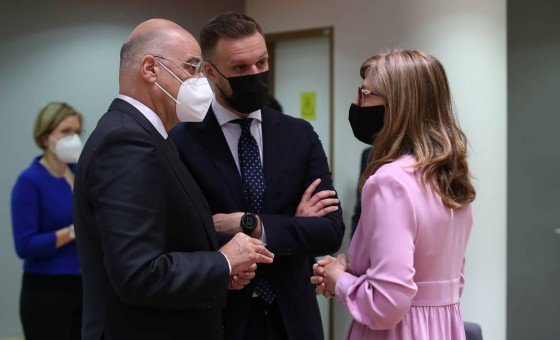
Vaccine Production Possible
The Vilnius-based company Northway Biotech announced recently that in cooperation with Swiss partners, it is developing an antibody drug that neutralizes the COVID-19 virus. Clinical trials are currently underway in Switzerland and if the results are positive, antibodies could reach the market by the end of this year. Professor Vladas Algirdas Bumelis, board chairman at Northway Biotech said the company could start producing the active substance of vaccines in a year, at the earliest, after concluding contracts with vaccine manufacturers. Northway Biotech could produce the active substance for the AstraZeneca and Novavax vaccines, according to Bumelis.
On May 12 prime minister Ingrida Šimonytė announced that the Lithuanian government is holding talks on producing Covid-19 vaccines in the country. “The government is making efforts both in discussions with companies and with the European Commission, specifically with Internal Market Commissioner Thierry Breton, to use the potential that Lithuania has to produce vaccines here,” Šimonytė told reporters. Although Lithuania can manufacture the active substance, the millions of bottles that would be needed would have to be acquired from Latvia, which does have bottling factories.
Currently, Vilnius-based Thermo Fisher Scientific Baltics manufactures components used in the production of coronavirus vaccines.The European Commission is currently working on a plan for mass vaccine production in Europe and is looking for companies to manufacture vaccines.
Newly Discovered Tower
The last underground tower of Vilnius’ Lower Castle has been located at the foot of the Lithuanian capital’s Gediminas Hill using electric tomography. The remains are under Pilių Skveras between the monument to the Grand Duke Gediminas and the former Rotonda cafe.
Stanislovas Patkauskas, scientific research coordinator at the State Cultural Reserve of Vilnius Castles said that no archaeological excavations are planned on the site during this season due to a lack of funds.
It is difficult to say when the tower was built, but it was first mentioned in written texts in the 16th century, he said. The eastern tower of the Lower Castle was discovered in 2019-2020. These towers had to be linked by a defensive wall whose remains should also have survived.
Possible Minimum Wage Increase
The minimum monthly wage in Lithuania could increase by 9.6%, or 62 euros, to 703 euros in 2022, Kotryna Tamoševicienė, head of the Economics Department of the Central Bank of Lithuania said on May 11. The potential size of the minimum wage had been estimated based on wage forecasts prepared by the Ministry of Finance and in view of the formula agreed by the Tripartite Council. The pandemic had virtually no slowing effect on wage growth last year, except in the accommodation and catering sectors, Tamoševičienė said, adding that the number of workers had not changed significantly. Inga Ruginienė, president of the Lithuanian Trade Union Confederation, and Mindaugas Liutvinskas, Deputy Finance Minister, proposed to use the formula provided by the Bank of Lithuania.
The Tripartite Council has agreed that the minimum monthly wage should stand at 45-50% of the average salary. The minimum monthly wage was last increased in January to 642 euros (before tax), from 607 euros.
Baltics Aim to Leave Grid

On May 13, the Baltic states took a major step towards unplugging from their Soviet-era power grid controlled from Moscow with the arrival of a major piece of infrastructure in Lithuania. The country’s energy minister, Dainius Kreivys, hailed the arrival of a 164-tonne autotransformer as a “crucial step” towards energy security, according to the AFP news wire. The transformer will allow power to arrive from neighbouring Poland to Estonia, Latvia, and Lithuania via the LitPol link.
The Baltic states plan to synchronize their power grids with the rest of Europe by 2025 in a project considered by Brussels as critical to the EU’s energy security. “Synchronization will be the last step in Lithuania’s integration with democratic Western world,” Kreivys said.
Pushing for Sanctions
Lithuania and Poland are leading the push for further EU sanctions against the regime of Alexander Lukashenko in Belarus, according to four diplomats. Amid frustration that the existing measures have had little effect, Vilnius and Warsaw are trying to add as many as 50 people to the existing sanctions list from June. Following the rigged presidential elections last year and a crackdown against protesters, the United States, Britain, Canada, and the European Union have imposed asset freezes and travel bans on almost 90 Belarusian officials. The Baltic states have also blacklisted a total of 274 Minsk officials.
Statement on Russia
Lithuanian Foreign Minister Gabrielius Landsbergis attended the Foreign Affairs Council meeting in Brussels, Belgium, on May 10. The main issues addressed were transatlantic relations, strained EU-Russian relations, the situation in the Western Balkans, and Belarus.
In his statements, Landsbergis noted that while celebrating its Victory Day parade, Russia demonstrated a militarized policy and the situation along Ukraine‘s borders may begin to deteriorate at any time. Russian opposition leader Alexei Navalny‘s organizatiion has been declared extremist, which has taken away the opportunity for it to participate in political life and paralyzed the only movement capable of opposing the regime before the upcoming Duma elections. The minister said that as Russia steals the right to vote, the EU should react more resolutely in dealing with these violations of human rights. He stressed the need to reduce the number of representatives of Russian military intelligence in the EU and to increase support for Russian civil society.
According to Landsbergis, if there is no principled EU response to Russia‘s actions, including the terrorist attack in the Czech Republic, a member of EU and NATO, Russia will consider this an open invitation to continue to stage attacks. The EU must act strategically, he said.
During a video conference with John Kerry, US Special Presidential Envoy for Climate, Landsbergis noted on behalf of the Baltic states that the world is facing not only economic and social but also security challenges as a result of climate change. The Foreign Minister called on the US together with the EU to promote changes in attitudes of the world‘s largest emitters toward the negative effects of climate change, with new opportunities stemming from innovation and green transition. The Baltic states have made significant progress in the areas of renewable energy and circular economy, which they could share with the most vulnerable Eastern neighbours.
With news from LRT.lt, EU Observer and the Lithuanian Foreign Affairs Ministry





























